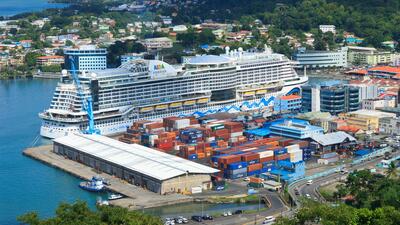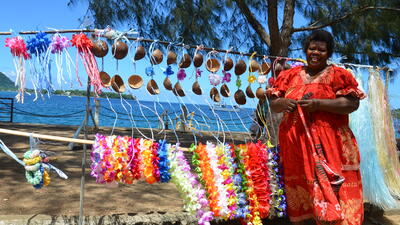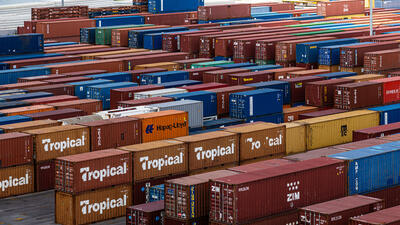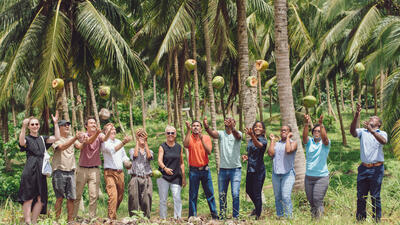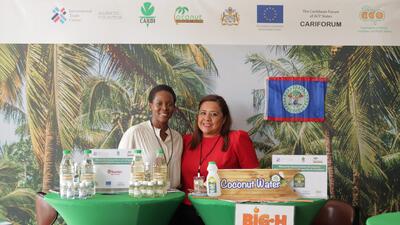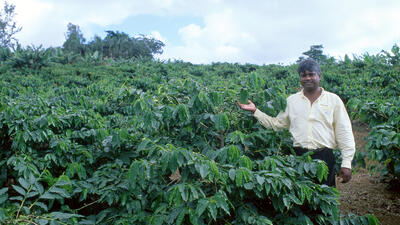


ITC’s trade strategy for small island developing States
The share of small island developing States (SIDS) in global trade has stagnated and shrunk in the last decades and global shocks including the COVID-19 pandemic have severely disrupted their economies.
SIDS face a set of shared problems related to remoteness, scale, and vulnerability.
1. Small businesses on remote islands face high transport, communication, and energy costs.
2. Without a large domestic market to support economies of scale, these small businesses are missing out on market opportunities that could otherwise be achieved through clustering and sector coordination.
3. In terms of vulnerability, SIDS see climate change as a serious threat to their survival. Vulnerability is also a result of undiversified economies and an overreliance on imported food products and inputs for small business production. As SIDS often heavily depend on tourism, the COVID-19-pandemic has resulted in a detrimental impact on many destinations.
Global trends offer hope.
Services, technology-enabled and creative exports are growing in value. The global uptake in digital technologies is dramatically changing the way we trade. In these sectors, less affected by issues of distance and scale, small businesses in SIDS can compete.
The growing global demand for sustainably and ethically produced food from land and water, also offers an opportunity for small business trade with transparent supply and place-driven branding. The blue and green economies therefore represent high growth opportunities.
Our four priority goals for SIDS
- Support SIDS in their economic diversification by boosting exports in emerging, high value, innovative niche sectors (for instance, the blue, green, and orange economies).
- Strengthen the capacity of small businesses to overcome limitations related to remoteness, scale and vulnerability.
- Promote the growth of digital and e-commerce infrastructure to boost the international competitiveness small businesses.
- Support small business’ climate resilience to ensure business continuity and mitigate impacts.

In 2023, ITC delivered 8% of its programming in 35 SIDS.
In the Caribbean, from Antigua and Barbuda to Trinidad and Tobago, ITC’s projects have supported national governments with their export strategies, strengthened the capacity of women owned businesses through our SheTrades Initiative, and boosted the competitiveness of small-scale farmers in coconut value chains through more sustainable production and developed market linkages for farmers in the cocoa sector.
ITC will be expanding projects to build sustainable food systems, promote food security and nutrition, and strengthen the Business Process Outsourcing/IT industry in CARIFORUM Member States.
In the Pacific, ITC has strengthened agribusinesses in the coconut and kava sectors. Working in Fiji, Papua New Guinea, Samoa and Solomon Islands, ITC has been helping companies to use the Economic Partnership Agreement with the United Kingdom to drive export growth and ultimately secure employment.
In the Atlantic, Indian Ocean and South China Seas region, ITC is working in several countries including Timor Leste, Mauritius and the Comoros, in areas ranging from developing trade and investment policies and supporting WTO accessions to strengthening women entrepreneurs, fostering public-private dialogue platforms and enhancing quality management systems.
At the SIDS conference, ITC will be launching a Trade Tracker to monitor the trade of SIDS and a publication, “Agrifood Exports and Climate Change, A Guide for BSOs” to complement our ongoing work.
The next ten years will be critical for charting the course toward resilient prosperity.
In the Antigua and Barbuda Agenda for SIDS– a Renewed Declaration for Resilient Prosperity, there is a role for the private sector, including small businesses.
SIDS have made their priorities clear, and our role as ITC is to respond and support through our strategy.
Moving forward, in line with the Agenda, ITC can work with partners to:
- help with market opportunities and national export strategies to increase trade and investment.
- support sustainable tourism and creative industries development.
- strengthen food security.
- address climate resilience, particularly among small businesses.
- provide trade data through the soon to be launched Global Data Hub.







